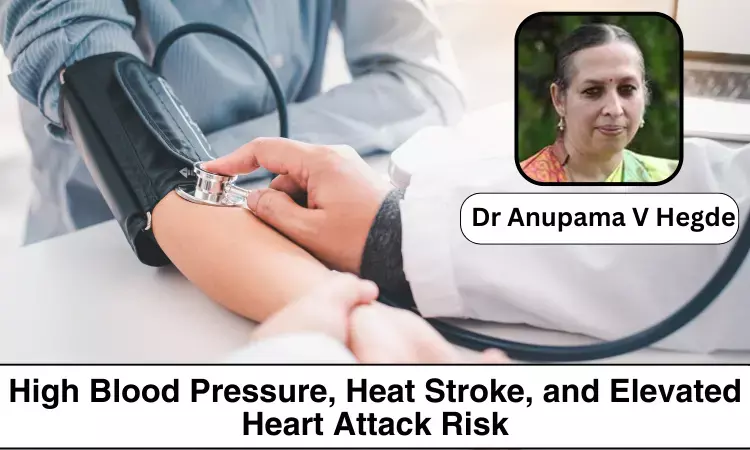- Home
- Medical news & Guidelines
- Anesthesiology
- Cardiology and CTVS
- Critical Care
- Dentistry
- Dermatology
- Diabetes and Endocrinology
- ENT
- Gastroenterology
- Medicine
- Nephrology
- Neurology
- Obstretics-Gynaecology
- Oncology
- Ophthalmology
- Orthopaedics
- Pediatrics-Neonatology
- Psychiatry
- Pulmonology
- Radiology
- Surgery
- Urology
- Laboratory Medicine
- Diet
- Nursing
- Paramedical
- Physiotherapy
- Health news
- Fact Check
- Bone Health Fact Check
- Brain Health Fact Check
- Cancer Related Fact Check
- Child Care Fact Check
- Dental and oral health fact check
- Diabetes and metabolic health fact check
- Diet and Nutrition Fact Check
- Eye and ENT Care Fact Check
- Fitness fact check
- Gut health fact check
- Heart health fact check
- Kidney health fact check
- Medical education fact check
- Men's health fact check
- Respiratory fact check
- Skin and hair care fact check
- Vaccine and Immunization fact check
- Women's health fact check
- AYUSH
- State News
- Andaman and Nicobar Islands
- Andhra Pradesh
- Arunachal Pradesh
- Assam
- Bihar
- Chandigarh
- Chattisgarh
- Dadra and Nagar Haveli
- Daman and Diu
- Delhi
- Goa
- Gujarat
- Haryana
- Himachal Pradesh
- Jammu & Kashmir
- Jharkhand
- Karnataka
- Kerala
- Ladakh
- Lakshadweep
- Madhya Pradesh
- Maharashtra
- Manipur
- Meghalaya
- Mizoram
- Nagaland
- Odisha
- Puducherry
- Punjab
- Rajasthan
- Sikkim
- Tamil Nadu
- Telangana
- Tripura
- Uttar Pradesh
- Uttrakhand
- West Bengal
- Medical Education
- Industry
High Blood Pressure and Heat Stroke: The Risk of Increase in Heart Attack - Dr Anupama V Hegde

Hypertension or high blood pressure also referred as ‘silent killer’ affects millions of people worldwide, with approximately one in four adults suffering from this condition. Hypertension doesn't show any symptoms until it causes serious side effects including kidney failure, heart attacks, or strokes. What many people might not be aware of, though, is the strong link between heat stroke and high blood pressure, especially when it comes to the combined effects on heart health.
Strokes are typically caused by high blood pressure and other traditional risk factors. Traditional risk factors among people aged 35 to 44 accounted for 40% of strokes in women and 33% in males. High blood pressure was the most significant conventional risk factor, and it grew in relevance as people aged. Among people aged 45 to 55, it was responsible for 27% of strokes in women and 28% in men.
It is important to understand the relationship between high blood pressure, heat stroke, and an elevated risk of heart attack as to avoid the negative health consequences during hot weather. There are various factors that contribute to high blood pressure, including genetics, lifestyle choices, and underlying health conditions such as obesity and diabetes.
The Interplay Between High Blood Pressure and Heat Stroke:
There are multiple underlying processes that raise the risk of cardiovascular incidents, including heart attacks, that are shared by high blood pressure and heat stroke. When temperatures rise, the body's natural response is to dilate blood vessels to dissipate heat and maintain a stable core temperature.
However, for individuals with high blood pressure, this dilation places added strain on the heart, exacerbating an already compromised cardiovascular system. Furthermore, heat stroke can worsen the situation by causing dehydration and electrolyte imbalances, further increasing the risk of heart attacks and strokes.
Heat stroke can precipitate heart attacks, especially in people with pre-existing hypertension. Heat stroke causes physiological stress, such as dehydration, electrolyte imbalances, and systemic inflammation, which can lead to acute cardiovascular events in vulnerable people.
Furthermore, heat-induced vasodilation combined with dehydration can cause an abrupt decrease in blood pressure, impairing coronary perfusion and raising the risk of myocardial ischemia, a precursor to heart attacks.
Preventive Measures
Given the intricate link between high blood pressure, heat stroke, and heart attacks, proactive measures are crucial for safeguarding cardiovascular health, particularly during elevated temperatures. Individuals with hypertension should prioritize effective blood pressure management through lifestyle modifications, including adopting a heart-healthy diet, engaging in regular exercise, maintaining a healthy weight, and limiting sodium intake.
Staying well hydrated is essential to prevent dehydration and lower the risk of heat stroke, especially in hot weather. Heat-related illnesses can be avoided by limiting exposure to high temperatures, seeking shade, and wearing light, breathable clothing. Consulting with doctors to create individualized plans for controlling heat exposure and reducing cardiovascular risks is also essential.
Recognizing warning signs of impending cardiac issues, such as chest pain, shortness of breath, and palpitations, is paramount. Prompt medical attention can potentially prevent serious complications.
There is hope, even if the combination of high blood pressure and heat stroke presents a serious threat to cardiovascular health, especially during hot weather.
People may successfully protect their heart health and reduce the chance of major consequences by being aware of the dangers and taking proactive measures to remain cool and hydrated.
It is possible to avoid the risks of heat stroke and high blood pressure by being vigilant and taking preventative steps, which will make everyone's summer safer and healthier.
Dr Anupama V Hegde MBBS, DNB (Cardiology) is a Consultant (Department of Cardiology) at Ramaiah Memorial Hospital, Bengaluru. She has more than 14 years experience in Cardiology, with 9 years of teaching experience. She specialises in Advanced Echocardiography, Diagnostic and Therapeutic Cardiac Procedures, Complex Angioplasties, Preventive Cardiology, Clinical Cardiology and more. Her field of interest includes management of cardiac disease in women and management of pulmonary hypertension and cardiac problems in patients who have recovered from COVID-19 infection.


